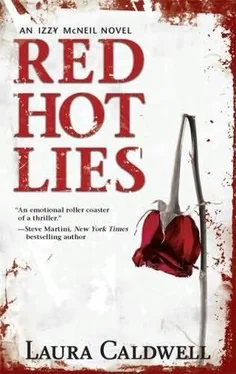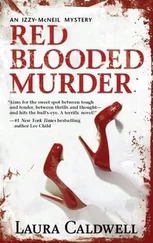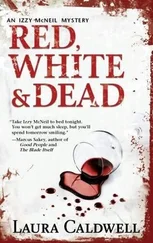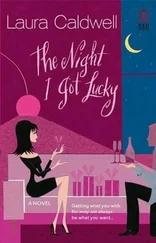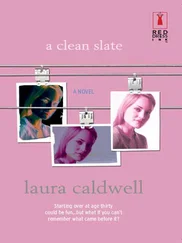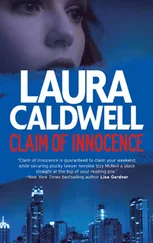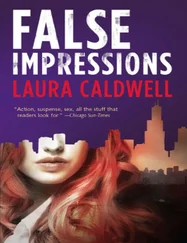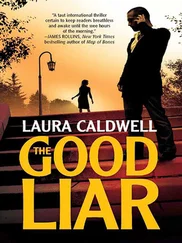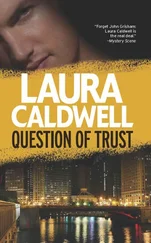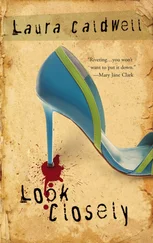“Come here.” She tightened her grip until it cut into my skin, pulling me closer. She leaned down and sniffed. “You smell ripe, girl.”
I froze, hoping this was all a mortifying, horrifying, terrifying dream.
“Has your mother bought you anything for that?”
“For what?”
She sighed-the same sigh that Moses must have made when he pondered the pickle of the Red Sea. “Watch your brother.”
She grabbed her keys and left the apartment. She returned twenty minutes later with a brown paper bag. She took out a blue tube that read Secret on the side. “Put this under your arms before you get dressed,” she said, plunking it down on the counter. “Every morning. Got it?”
We stared at each other. I knew she wasn’t steering me wrong. “Sure, got it.”
I quickly learned that when Bunny said something, she was rarely incorrect. And at the very least she was always atrociously honest, which was exactly what I needed now with Sam gone and no clue what, in my life, was worthy of belief.
Bunny was in her late seventies now and had only stopped cleaning houses a few years prior when a number of deaths in her distant family resulted in one cousin’s money being left solely to her. She still lived on Schubert Avenue in the place she’d bought in the sixties with her first (and only) husband, and which she had kept in the divorce a few years later.
I stood in front of the house now. It was a squat, old, brown cottage, overgrown with trees and surrounded by soaring brick brownstones, all built within the last ten years. Bunny had been offered loads of money to sell her place to developers who would raze her outdated shack. She could move to a bigger and better house with that kind of money, they told her. And she told them to shove it. I was sure her neighbors gritted their teeth every time they looked at the straggly bushes at the perimeter of the property and the little windmill outside Bunny’s front door.
I knocked. I hadn’t called, but I knew she’d be home. Bunny rarely left the place these days.
She opened the door, the smell of vinegar (her favorite cleaning solvent) wafting from behind her. She looked much the same as she had years ago-same hair, although it was white now; same grim set to her mouth.
“What are you doing here?” she asked by way of a greeting.
“Great to see you, too.” I kissed her on the cheek, and she quickly wiped at it with the back of her hand.
The front room of Bunny’s house was a sitting room decorated with sixties furniture-curved leather couches and mod coffee tables, stuff she and the husband had purchased way back when. For years, it was painfully dated, but now that retro was hot again, the room made Bunny seem like an elderly woman with extremely hip tastes. The Chicago Trib lay in sections on the table next to a cup of coffee.
Bunny nodded at the table. “Want some coffee or tea?”
“Sure.”
“It’s in the kitchen.” She sat down on the couch.
When I was back with a cup of tea, Bunny put down the paper and stared at me with a frown, waiting.
“It’s Sam,” I said.
The corners of her mouth lifted for the briefest second before dropping again. “I like that boy.”
This was true-I’d brought Sam around a few times and Bunny had taken to him like she didn’t to most people. He didn’t try to butter her up, and he shared her love of hot dogs and Polish sausage, and the two of them could go head-to-head for hours, debating Sugerdawg vs. Vienna Beef vs. Nathan’s vs. Portillo’s vs. Red Hot.
“Sam seems to have taken off,” I told Bunny. I told her what I knew.
Bunny’s gaze moved away from mine toward the light coming through her front window. She stared out, looking almost wistful in a way I’d never seen before. “I miss having a man around.”
I held my breath. Never, ever, ever had I heard such a sentiment from Bunny’s mouth, and I would have bet my favorite True Religion jeans that I never would.
“Bart was a shithead,” Bunny continued, still staring out the window. “I’m glad I divorced him. But it sure is nice to have someone to spend your life with.” She turned and met my eyes. “Sam was pretty special.”
“He is.” I shrugged. “Who knows, maybe he’s a pretty special con man.”
“You believe that?”
“No.”
“I don’t believe it either,” Bunny said. “So what are you doing about it?”
“I tried asking the cops and the feds, but they don’t know anything more than I do. I called this detective I know, but it doesn’t seem like he’s able to help me.”
She scoffed. “So try harder, Izzy. You’re no stranger to getting your hands dirty. Do it.”
“How?”
Her eyes narrowed with annoyance. “I don’t know.”
“But what if Sam is a thief? What if he stole Forester’s money?”
“Then when you find him, you can cut his little pecker off.”
“It’s not little, actually,” I said before I could stop myself. I slapped my hand over my mouth. “Sorry.”
Bunny tossed her head back and laughed, one of only a handful of laughs I’d ever heard from her. “Well then, all the more reason to track that boy down.”
I nodded. Nodded again. Thought of what I had to do. “Thanks, Bunny.” And I left.
From a distance, John Mayburn followed Lucy DeSanto as she pulled out of the garage behind her Lincoln Park mansion. Compared with the other brick or wood-sided houses on the street, the place was a monstrosity. It was made of white-gray stone, took up three full lots on Bissell Street and was shaped like a huge L. From what Mayburn could tell from studying its aerial view, the inside of the L opened to a large courtyard, a luxury in Chicago.
The problem, at least for Mayburn, was that a massive wall made of the same white-gray stone surrounded the place, which made it impossible to see inside from the street. To add to the overkill, the wall was spiked on top.
He needed to be inside this house. Working with the auditors at the bank he’d been able to detect a pattern, his only lead on this case. Whenever DeSanto worked from home he predominantly handled transactions for a business called Advent Corporation, whereas when he was at the bank his transactions were easily spread among the thirty clients in his portfolio. Something funky was going on with DeSanto and Advent Corporation.
Advent claimed to do corporate business consulting. They actually had the nerve to call themselves “process reengineers,” which Mayburn found freaking priceless. Really, what did such people actually do?
There was one interesting thing he and the bank had pieced together about Advent-the year before, they’d had twenty-five million in sales and netted eighteen, and yet they did about thirty-five million in transactions with Bank Midwest. Always through Michael DeSanto.
Mayburn was starting to suspect Advent was a mob-owned corporation, and DeSanto was laundering funds for them. Why he always ran such transactions from home, Mayburn wasn’t exactly sure, since he could access the same network from work. What was probably happening was that DeSanto got instructions from Advent while at home, either through a secure phone line or through a different secure network. That was why Mayburn needed to get into the guy’s house and, in particular, onto his computer.
He wanted to crack this case, not just because the bank was jumping on him to do so, but also because it annoyed him that some smug jerkoff like DeSanto got the fat crib and the girl and the family and probably a pile of money in an offshore account. DeSanto seemed to have a full-fledged life, something Mayburn realized he was missing.
Since he hadn’t figured out a way to get inside, he was tailing Lucy again.
Читать дальше
Конец ознакомительного отрывка
Купить книгу
